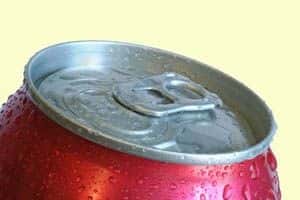
Most people are aware that consuming too much sugar is not good for our health. A study from Sweden suggests that not all sweet foods are equivalent, though. Occasional sweet treats like pastries don’t appear to be as damaging as sugar-sweetened beverages (Frontiers in Public Health, Dec. 9, 2024). That conclusion was supported by a recent meta-analysis of various studies.
Sugar-Sweetened Beverages and the Risk of Diabetes:
Drinking sugar-sweetened beverages appears to increase the likelihood of developing type 2 diabetes (Advances in Nutrition, May 2025). The analysis of 29 studies found that sugar in liquid form (such as soft drinks) was more hazardous than that in fruit or other solid foods. Each additional serving of sugary drink daily increased the risk of diabetes by 25%. Fruit juice consumption bumped the risk by 5% per serving. Solid foods seem to slow the absorption and metabolism of sugar. This may offer some protection from developing type 2 diabetes, in which the body fails to respond appropriately to insulin.
What Happened to People Who Drank Sugar-Sweetened Beverages in Sweden?
The researchers in Sweden had data from two large groups of people: The Swedish Mammography Cohort and the Cohort of Swedish Men. These people completed detailed dietary questionnaires in 1997 and 2009 respectively.
Scientists collected more than a decade of data on almost 70,000 participants. They divided sugar consumption into three different categories: sweet treats, sugary toppings and sugar-sweetened beverages.
The Outcome Was Discouraging:
Nearly 26,000 people developed cardiovascular disease during the follow-up. Those who regularly consumed sweetened drinks were at the highest risk for heart failure, atrial fibrillation, stroke and aortic aneurysm. There was something of a dose response curve. That is to say, more sugar was worse for the cardiovascular system. People consuming more than eight servings a week appeared to increase their chance of a stroke by 19% and their likelihood of heart failure by 18%. They also were at an 11% greater risk of atrial fibrillation and a 31% higher risk of abdominal aortic aneurysm.
Artificially-sweetened beverages also increased the risk for stroke and heart failure. In this observational study, people who ate the fewest sweet treats and the least sugar actually had the highest risk for cardiovascular problems. Perhaps people with ill health overall are more careful about limiting sugar consumption, but the study does not provide that information. The authors do note a probable link between consumption of sugar-sweetened beverages and lower dietary quality overall.
The good news is that people who enjoyed an occasional treat were not at increased risk, so it’s not necessary to avoid all sugar in order to stay healthy.
This is not the first study to point an accusing finger at sugar. Here is a link to an older post describing the risk for diabetes among people drinking more sugar-sweetened beverages.
Citations
- Janzi S et al, "Added sugar intake and its associations with incidence of seven different cardiovascular diseases in 69,705 Swedish men and women." Frontiers in Public Health, Dec. 9, 2024. https://doi.org/10.3389/fpubh.2024.1452085
- Della Corte KA et al, "Dietary sugar intake and incident type 2 diabetes risk: A systematic review and dose-response meta-analysis of prospective cohort studies." Advances in Nutrition, May 2025. https://doi.org/10.1016/j.advnut.2025.100413

